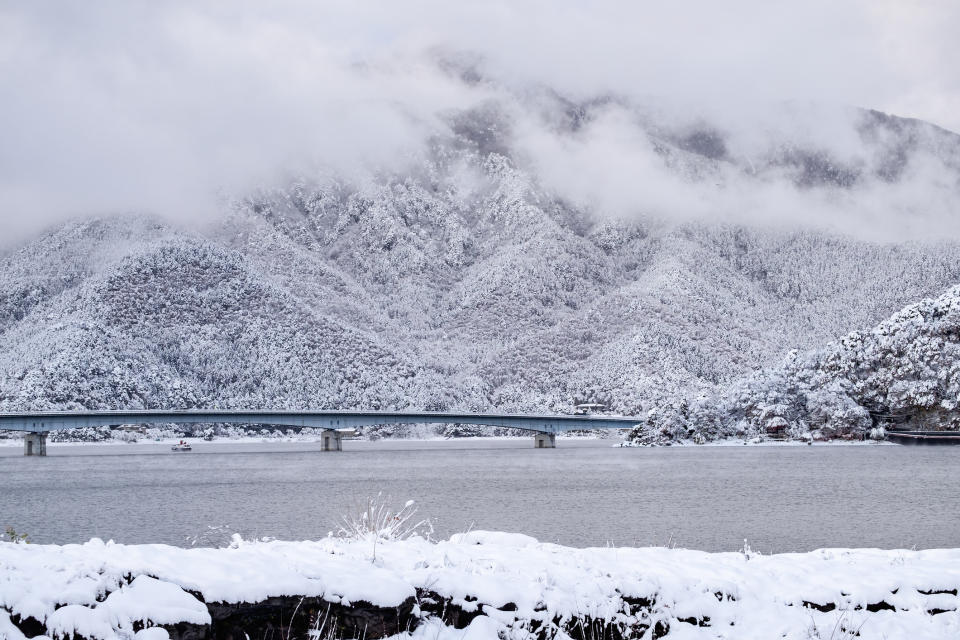'Rare' freezing rain is set to hit the UK this weekend - but what is it?
Heavy snow, gales and “rare” freezing rain are expected to hit parts of the UK as Storm Deidre arrives.
Weather warnings are in place for much of the country for Saturday, with travel disruption and power cuts expected.
Only the South East of England is not covered by either a yellow or amber warning, although forecasters say the area will still see some heavy rain.

But what is freezing rain?
According to the Met Office, freezing rain occurs when rain falls through sub-zero temperature air to become supercooled water that freezes “almost instantly” when it hits a cold surface.
It typically starts life as snow, ice, sleet or hail which falls through a layer of air above zero degrees and melts into liquid water.
MORE: Giant boulder smashes through wall into man’s bedroom during rockfall
MORE: Adorable footage captures baby polar bear snuggling with its mum
If these water droplets then pass through a zone of sub-zero air just above the ground, they become supercooled.
When supercooled droplets eventually strike cold ground they freeze on impact, creating a glaze of ice.

Why is it dangerous?
The ice glaze can cause all sorts of problems, leading to large-scale disruption.
It can collect on trees or power lines which then break from the weight of the build-up.
It can also make roads and pavements slippery, causing a risk to motorists and pedestrians.
How common is it in the UK?
Freezing rain can be common in some weather systems, such as in parts of the US, says the Met Office.
But it adds: “The conditions needed for freezing rain to occur are quite specific and we don’t see them very often, making this phenomenon quite rare in the UK.
“We are more likely to see rain falling on to already frozen surfaces, or wet surfaces that freeze as temperatures drop below 0C overnight.”


